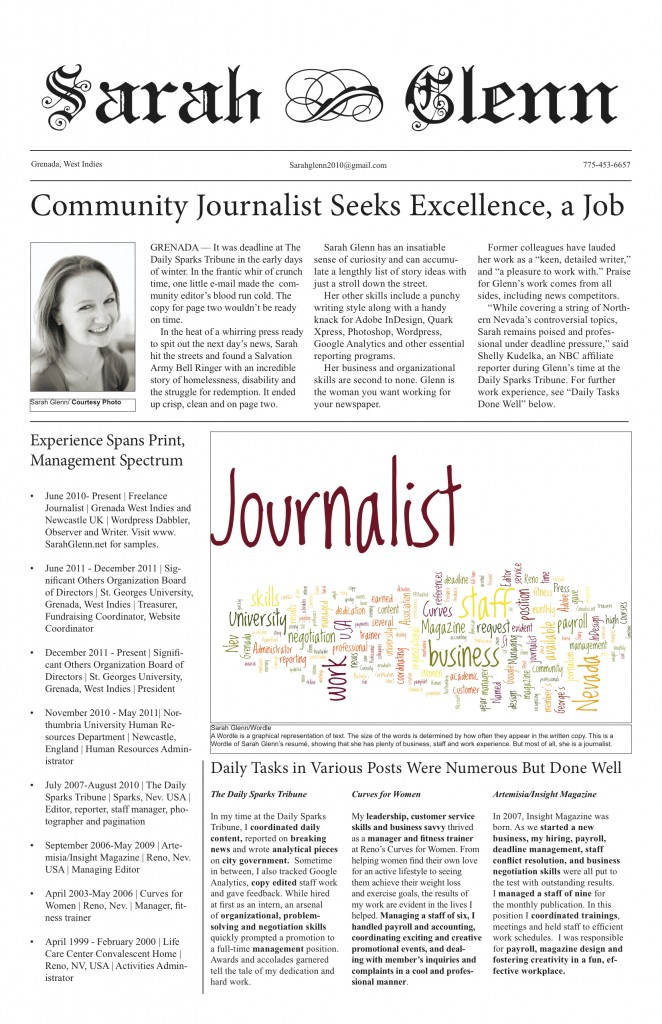My old employer, The Daily Sparks Tribune, recently asked for a series of articles on my experience living abroad in order to have a better life in America.
For your reading pleasure, here is the first installment.
“Home is what you make it,” I thought optimistically as we opened the door to our new apartment. Then the pink molding around the doors stared back at me. Lord almighty, this was going to take some getting used to.
Two years ago, my husband and I left the friendly neighborhoods of Sparks to chase a medical degree at a Caribbean school, St. George’s University. His elusive M.D. has taken us on a wild ride across England and now down to this little speck of rock we call home — Grenada, West Indies.
Yes, the same one Reagan invaded.
With each new door we have opened, one thought continues to run through my mind: This is no American dream. But we’ll come back to that.
There is a good chance that you are a transplant yourself. I hear that a beast commonly known as “The Great Recession” has scared a few people out of their homes.
One in every 177 homes in Nevada got a foreclosure notice in December 2011, according to RealtyTrac. The majority of these notices were given in Clark County with a whopping 5,474, again according to January numbers from RealtyTrac. Washoe lagged behind with a modest 562 foreclosures in January alone.
So what happens when times get rough and the recession monster comes knocking at your door? Sometimes, you move. If the move is housing related, e.g. a foreclosure, you will probably stay in state, the U.S. Census Bureau reports. Only 11.6 percent of Americans moved more than 500 miles because of a housing issue. If it’s a job problem, however, 43.9 percent of us will load up the moving truck for a long haul of more than 500 miles. Incidentally, fewer than 25 percent of the Nevadans you know and love were actually born in the state. That’s the lowest local population in all of the U.S. of A. Being a true, blue Nevadan is a rare thing indeed.
But I have a sneaking suspicion you don’t care much about all that. Change transcends the data and statistics don’t paint the full picture of recession-recovering America. It’s that pit in your stomach when the bill comes. It’s the exhausted sigh on the couch at the end of a too-long day at a dead end job, or no job at all. For me, it is the herd of goats and beggars that wander around our old Grenada apartment complex. Ah, the joys of living in a third-world country.
Why do we live here? That’s an easy question to answer. When in the course of human events, it becomes necessary for one people to dissolve the bands that have held them to a certain place, they must move on to pursue life, liberty and happiness. I took some bold liberties with those sacred words, but I think you get the point.
The American dream is one worth chasing, even beyond its own borders. In the 18th century it was certainly worth fighting for, dying for. Chase that job, pursue that dream, even if you run into some ugly pink crown molding in a dingy apartment along the way.
We went all the way to Grenada to chase the American dream. What are you willing to do?
Sarah Cooper-Glenn is a journalist from Sparks, Nev. She currently lives in Grenada where she is a global politics and travel writer. She can be contacted at sarahglenn2010@gmail.com.

